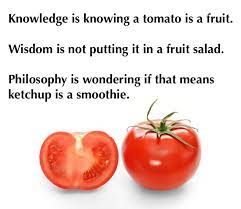Why is Research Philosophy needed?
Yes, why are they needed? They don’t help me with my research!, and they don’t give me the tools or tell me how to do things!

That was the way I felt, and I am sure there are some of you out there that are not academic or are just starting out in academia and think they are silly things, that make no sense, and are like those studies we hear about on the news or the papers when someone has spent thousands researching which side the buttered toast lands on when it is dropped off the kitchen table.

And it was only recently that my mind was changed, not through a debate, or a conversation or even a lecture, where research philosophy is explained.

What is research philosophy? Well, in a nutshell, it is one of the reasons why we think of knowledge in the way we do.
I know, not helpful, Ok, another way of thinking about research philosophy is to consider it as a process that asks us (the researcher) questions about the way we think, and what we think knowledge is.
Research philosophy is something I have personally battled with, and yes I mean battled, with for over 6 months trying to grasp a simple understanding.

However, let me say this first off, a lot of the academics and scholars that write about research philosophy try to make it simple, less confusing and less out there with the fairies.
Very very simply it is a process, that asks two questions. (There is a third question, but that is more related to how you will do your research)
The first question is what do / can we know? (Try answering that one). The second question is how do we know what knowledge is legitimate? Or How can / do we know what we know?
The first question could be related to what we as individuals consider as knowledge, and you also have to bear in mind that I am different from you. I have my own ideas about, life, success, failure, happiness, sadness, pain and knowledge, who is a good Prime Minister, or a good President? and some of these will be very different from yours (as the reader).
The first question is, “what do / can we know, or what is knowledge?” (According to me, the writer of this blog and not you, as the reader of this blog, as you will have different ideas, of what knowledge is).
Well, put very simply knowledge is something that we know or believe to be true, for example, the United Kingdom is an island, and The USA is a country in a continent or larger landmass. Both are true as far as we know; because we have been told, we have seen the maps, and possibly even flown over the bourders or the coastlines.
But what happens if no one knows the knowledge, or the knowledge is so new that it has not been written down in a book, reported in the news, or discussed in a forum on the internet, or debated in some hallowed hall of some university, or Government think tank?

How can this knowledge be true, or be seen as knowledge, and can we be sure that we know it is knowledge anyway?
Well, this is how the second question can assist. That question is How can / do we know what we know?

So in other words where does the knowledge come from? or Who or how is it proved to be knowledge, or who or what makes that knowledge legitimate
Having fun yet? need a beer or a Gin and Tonic?

So if we look at that statement about the United Kingdom being an island, we are told by our school teachers, that that it is an island surrounded by the sea, and even shown maps, and so because we are being told, by someone in authority, and shown maps we believe it to be true.
But does that make that knowledge about the United Kingdom being an island true? Or do we only really believe it when we see the coast or view the United Kingdom from space ourselves?
This is one form of knowledge, but what about knowledge that has never been discovered? How can that be knowledge if no one knows it, or it cannot be given to us in the form of a bite-sized chunk?
How do we know, or how is that knowledge legitimised, if no one can tell us that this is knowledge and is therefore true?

The process of legitimising that knowledge is where research methodology comes into play, and that is a separate subject for another blog.
So now we have asked those two simple questions, we need to complicate things a little.
Why? Well just because I think one way does not mean that you (The reader) will think the same way.
Some people are very facts and figures driven, while others are very empathetic, and so with both of these questions, What do / can we know? And, How can / do we know what we know? There are the facts and figures orientated people and the empathetic individuals, and both have different ways of considering both those questions.
So if you think about it, research philosophy is a process of asking questions, which is what research is anyway.
Moreover, by trying to answer these questions, you can gain an understanding, of why you want to investigate a certain subject, how to legitimise the knowledge you create, and to a point how you can do it, that is through facts and figures or empathetically.
So to answer the question, what is research philosophy? Simply it is trying to answer those two questions, either through facts and figures or empathetically.
Some of you may have noticed, I have not cited any particular text or phrases to a particular author or authors, so I have a small bibliography here
Bibliography
Blaikie, Norman W. H., and Jan Priest. Designing Social Research: The Logic of Anticipation. Cambridge, UK ; Medford, MA: Polity, 2019.
Bryman, Alan. Social Research Methods. 3rd ed. Oxford ; New York: Oxford University Press, 2008.
Denzin, Norman K., and Yvonna S. Lincoln, eds. The Sage Handbook of Qualitative Research. 4th ed. Thousand Oaks: Sage, 2011.
Gray, David. Doing Research in the Real World. 4th edition. Los Angeles: SAGE, 2018.
Denzin, Norman K., and Yvonna S. Lincoln, eds. The Sage Handbook of Qualitative Research. 4th ed. Thousand Oaks: Sage, 2011.
Howell, Kerry E. An Introduction to the Philosophy of Methodology. Los Angeles: SAGE, 2013.
Williams, Malcolm. Key Concepts in the Philosophy of Social Research. SAGE Key Concepts. Los Angeles: SAGE, 2016.




